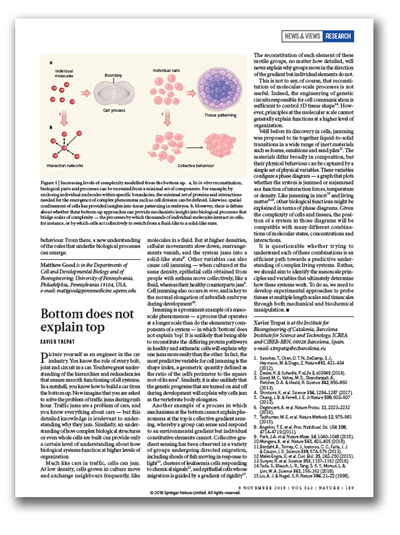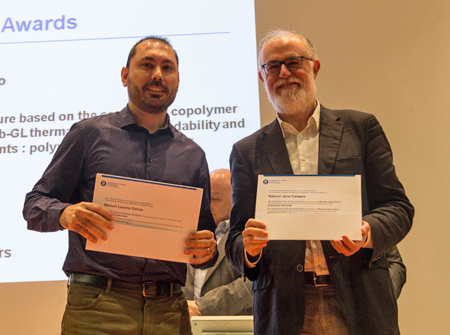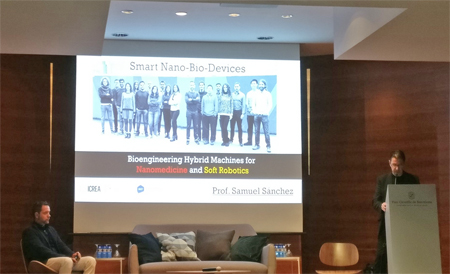Laboratory Technician at the Biomimetic systems for cell engineering Research Group
 Application Deadline: 21/12/2018
Application Deadline: 21/12/2018
Ref: LT-EM
The Biomimetic systems for cell engineering group at the Institute for Bioengineering of Catalonia (IBEC) is looking for Laboratory Technician candidate to contribute to the development of a physiological in vitro model of the intestinal epithelium from using organoid-derived cells.
The contract will be within the framework of the project “Engineering complex models of intestinal epithelium”, whose objective is the development of tissue-like models of intestinal tissue that can be used in basic research, disease modeling, host-pathogen interaction studies, and regenerative medicine.


 Application Deadline: 14/12/2018
Application Deadline: 14/12/2018


 El grupo de Procesamiento e Interpretación de Señales Biomédicas (BIOSPIN) de IBEC ha publicado un artículo juntamente con King’s College de Londres en el cual se presentan nuevas técnicas para la monitorización de pacientes con MPOC mediante métodos no invasivo.
El grupo de Procesamiento e Interpretación de Señales Biomédicas (BIOSPIN) de IBEC ha publicado un artículo juntamente con King’s College de Londres en el cual se presentan nuevas técnicas para la monitorización de pacientes con MPOC mediante métodos no invasivo.
 Hoy se ha inaugurado la Conferencia Internacional nanoBio&Med2018 en la que el Director del IBEC, Josep Samitier, ha presidido la primera ronda de presentaciones con la ponencia del investigador principal Samuel Sánchez.
Hoy se ha inaugurado la Conferencia Internacional nanoBio&Med2018 en la que el Director del IBEC, Josep Samitier, ha presidido la primera ronda de presentaciones con la ponencia del investigador principal Samuel Sánchez.